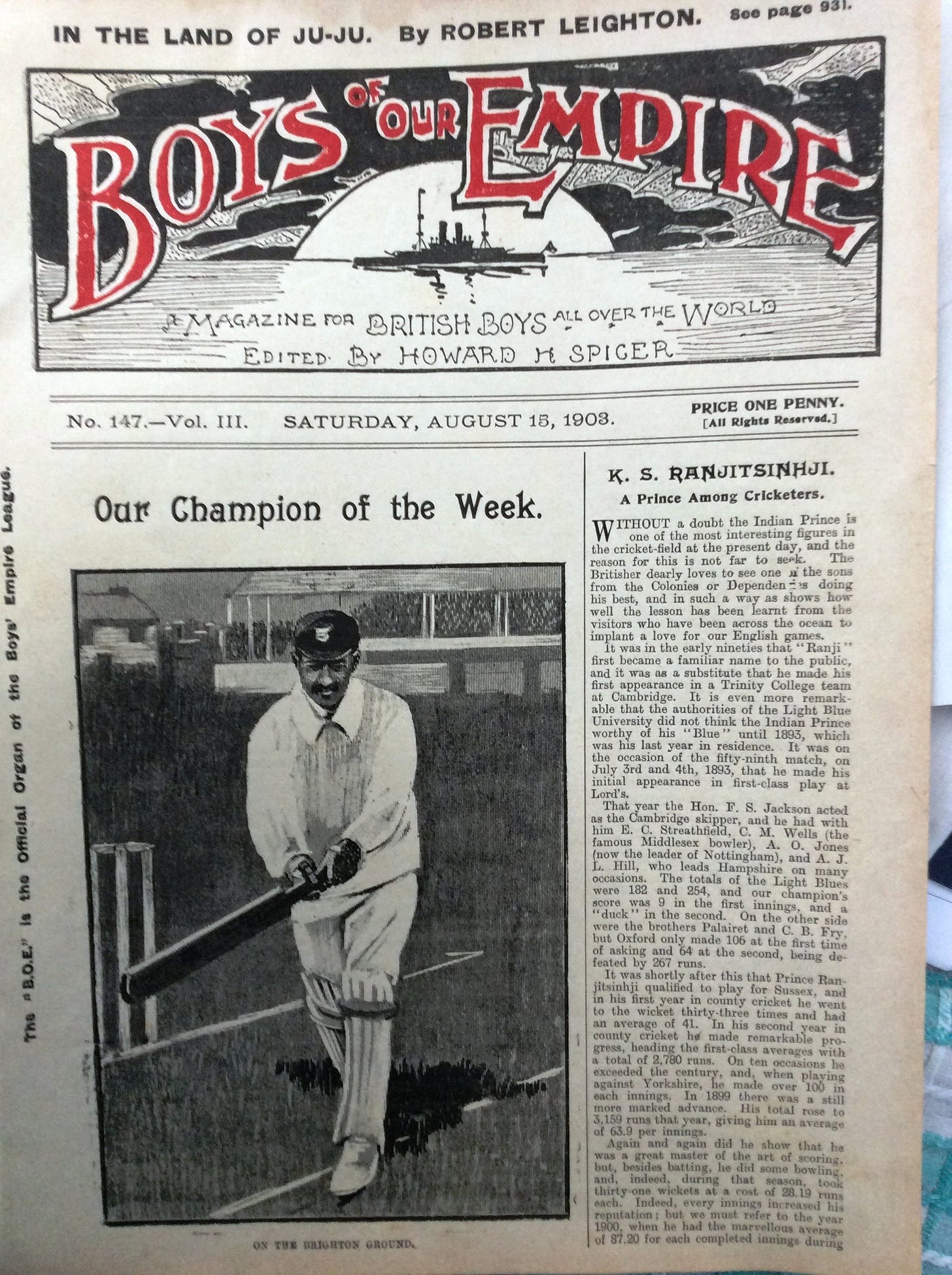Not long ago, while browsing the dust-laden shelves of a second-hand bookshop, I chanced upon a comic titled Boys of Our Empire. Its cover bore the unmistakable likeness of K.S. Ranjitsinhji—“Ranji,” the Prince of Nawanagar. I purchased it without hesitation. To me, Ranji is not merely the cricketer of the Golden Age; he is its very embodiment, its soul in silk and willow.
On July 3, 1893, as a student at Trinity College, Cambridge, he stepped onto the hallowed turf of Lord’s for his first-class debut. The occasion was the annual University Match. Around him were other names that echo still—Hon. F.S. Jackson of Yorkshire, E.C. Streathfield of Surrey, C.M. Wells of Middlesex, A.O. Jones of Nottinghamshire, A.J.L. Hill of Hampshire—but in every case more distantly than his, although in every case they outperformed him: Cambridge posted 182 and 254 in their two innings, Ranji contributing just nine to the first before succumbing for a duck in the second.
He qualified for his county not long after. It was at Sussex that he unfurled his genius and gave to cricket a fresh grammar. On August 22, 1896, at Hove against Yorkshire, he scored two centuries: 100 in the first and an unbeaten 125 in the second innings. It was the first time such a double had been achieved in a single day. The match ended in a draw, but the result was incidental. He had recalibrated the possibilities, playing strokes that had yet to be named, let alone taught.
But even princes are not immune to the mischief of fate. On August 31, 1915, while shooting grouse on the Yorkshire moors, he was accidentally shot in the face. His right eye could not be saved, but the left was preserved, and with it his vision and his batting. In gratitude to Dr Seckler Walker, he named a ward in the Nawanagar Hospital in his honour, and endowed the Leeds Infirmary with a new ophthalmic theatre and an outpatients’ department.
Ranji was not just a cricketer; he was a phenomenon, unsettling the very syntax of the imperial game. When he took guard at the crease, the East stepped onto the manicured lawns of the West—not as a supplicant or an invader, but as a sponsor bearing gifts. He wielded his bat like an artist, and painted strokes of such elegance and invention that English crowds, steeped in the orthodoxies of forward defence and straight bat, could only marvel and wander.





